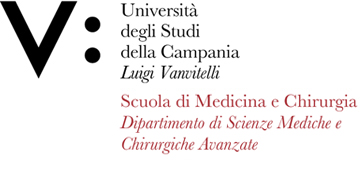Francesco SELVAGGI
Insegnamento di AFP GENERAL SURGERY
Corso di laurea magistrale a ciclo unico in MEDICINA E CHIRURGIA
SSD: MED/18
CFU: 3,00
ORE PER UNITÀ DIDATTICA: 60,00
Periodo di Erogazione: Annualità Singola
Italiano
| Lingua di insegnamento | INGLESE |
| Contenuti | Al III anno di corso gli studenti seguiranno dei tirocini teorico-pratici con l’obiettivo di acquisire le basi di metodologia clinica, chirurgica e di laboratorio che rappresentano le premesse per lo sviluppo della successiva acquisizione delle abilità cliniche nelle discipline previste nello stesso anno di programma formativo. |
| Testi di riferimento | Appunti |
| Obiettivi formativi | Le esercitazioni prevedono la frequenza delle strutture di Metodologia Chirurgica al fine di imparare a conoscere l’approccio al paziente chirurgico. Lo studente verrà messo in grado di eseguire un esame obiettivo e verranno forniti cenni sulle principali procedure cliniche, chirurgiche e laboratoristiche |
| Prerequisiti | Aver seguito I primi due anni di corso di Medicina |
| Metodologie didattiche | Osservazione diretta dello svolgimento dell’attività di reparto, ambulatoriale e di sala operatoria |
| Metodi di valutazione | L'esame orale riguarda i principali aspetti teorici delle più frequenti patologie di metodologia chirurgica. Lo studente dovrebbe essere in grado di discutere sull'argomento ed essere in grado di connettere e di analizzare le diverse sue componenti. Lo studente deve avere una conoscenza delle varie patologie. Al fine di testare l'acquisizione di questa capacità allo studente verrà chiesto di risolvere un semplice problema clinico orientato basandosi sulla manifestazione dei segni clinici. Il giudizio finale è espresso in “idoneo” o “non idoneo” ed è stabilito durante la prova orale. |
| Altre informazioni | Nessuna |
| Programma del corso | L’esercitazione mirerà all’acquisizione dell’ approccio al paziente chirurgico mediante acquisizione delle abilità dell’esame obiettivo di torace ed addome, esame obiettivo di collo e tiroide, polsi vascolari, valutazione del dolore toracico di pertinenza chirurgica, valutazione paziente con addome acuto, ispezione e palpazione delle porte erniarie. Sarà inoltre mostrata la patologia vascolare acuta di frequente riscontro e verranno esposte le suture chirurgiche in fase operatoria. |
English
| Teaching language | English |
| Contents | In the third year of the course students will follow theoretical and practical internships with the aim of acquiring the basics of clinical, surgical and laboratory methodology that represent the premises for the development of the subsequent acquisition of clinical skills in the disciplines planned in the same year of the program training. |
| Textbook and course materials | NOTES |
| Course objectives | Exercises include attendance at the Surgical Methodology facilities in order to learn about the approach to the surgical patient. The student will be enabled to perform an objective examination and will be given hints about the main clinical, surgical and laboratory procedures |
| Prerequisites | To have attended the first two years of the Medicine course |
| Teaching methods | Direct observation of the performance of ward, outpatient and operating room activities |
| Evaluation methods | The oral examination covers the main theoretical aspects of the most frequent pathologies of surgical methodology. The student should be able to discuss the topic and be able to connect and analyze its different components. The student should have an understanding of the various pathologies. In order to test the acquisition of this ability the student will be asked to solve a simple oriented clinical problem based on the manifestation of clinical signs. The final grade is expressed as "fit" or "unfit" and is determined during the oral examination. |
| Other information | None |
| Course Syllabus | The exercise will aim at acquiring the approach to the surgical patient by acquiring the skills of the physical examination of the thorax and abdomen, objective examination of the neck and thyroid, vascular pulses, assessment of chest pain pertinent to surgery, patient evaluation with acute abdomen, inspection and palpation of hernia doors. In addition, acute vascular pathology will be shown frequently and surgical sutures will be exposed during surgery. |








